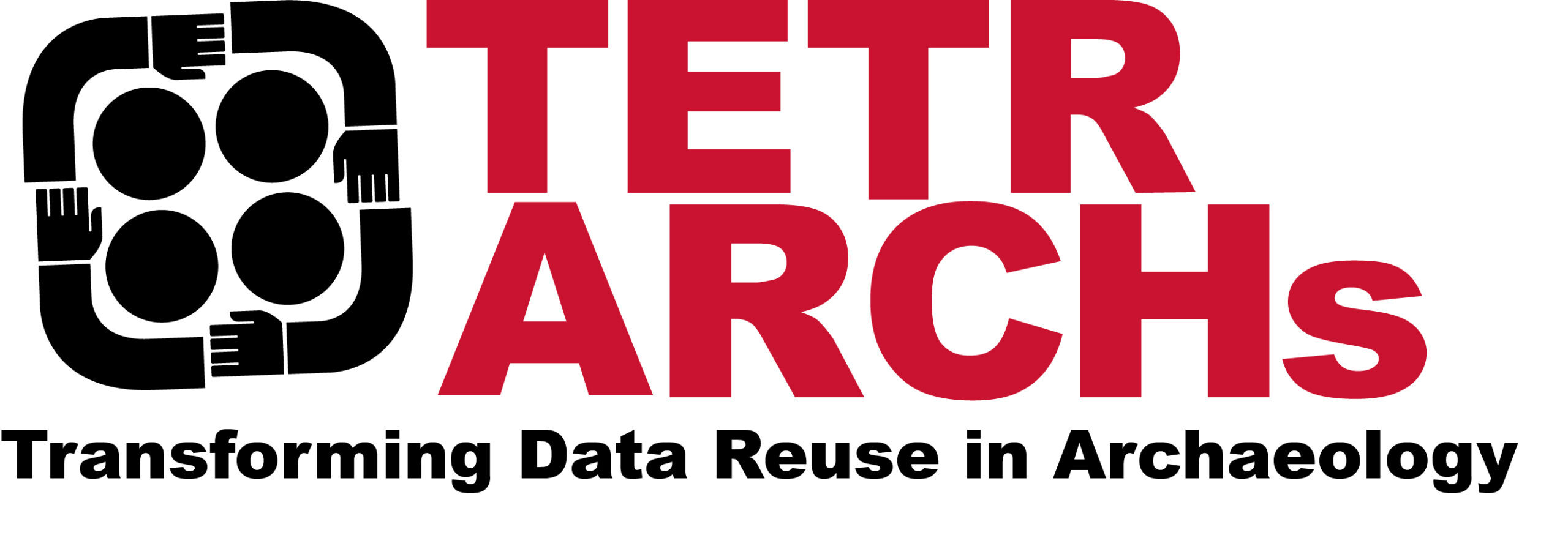Transforming Data Reuse in Archaeology (TETRARCHs) aims to commission 2 creative professionals to work with our team to co-create and assess the storytelling potential of archaeological data.
Host organisation:
The Department of Archaeology at the University of York is a top rated archaeology department, located in the centre of historic York, UK. We are developing new methods of exploring and visualising ancient landscapes, excavating sites, analysing ancient artefacts, human and animal bones, pioneering the biomolecular study of all manner of organic and inorganic compounds, and conserving our shared heritage in order to tell diverse stories and build a sustainable future.
https://www.york.ac.uk/archaeology/
The Research Project:
TETRARCHs: Transforming Data Reuse in Archaeology is experimenting with ways archaeologists collect data and use that data for storytelling in ways that are meaningful for diverse audiences. It is funded by the Collaboration of Humanities and Social Sciences in Europe CHANSE, which is a joint initiative of 27 research funding organisations from 24 countries, under European Union’s Horizon 2020 research and innovation programme.
CONSORTIUM:
Sara Perry, Project Leader (MOLA), Holly Wright, Co-I (University of York), Rimvydas Laužikas, PI (Vilnius University), Edisa Lozić, PI (Znanstvenoraziskovalni center Slovenske akademije znanosti in umetnosti), Nicolò Dell’Unto PI (Lund University), Helene Verreyke, PI (University of Antwerp), Christophe Verbruggen (Ghent University)
Colleen Morgan (University of York) will be leading this process.
Emergent Themes:
Our project includes archaeology data collection at three different scales – from whole landscapes, to single sites, to individual objects. We’ll explore these using four increasingly common technologies for data capture: airborne LiDAR, 3D scanning, digital field drawing and photography.
The following themes have emerged from the current understanding of the project:
- What might justice, resistance, insecurity, fear, jealousy, hope, romance, spirituality or courage have looked like in the past?
- How have people deceived, coped with, played amongst, desired, envied, betrayed or befriended one another across space and time?
- How does loneliness, ambition, prejudice, morality, independence, servitude or freedom manifest in the historical record? How might we deploy this knowledge today to effect pro-social change?
Creative Commission:
TETRARCHs aims to commission 2 creative professionals to work with the TETRARCHs team to co-create and assess the storytelling potential of the optimised data. They will identify archaeological data that is meaningful to their practice and to feed back into the process of archaeological investigation. During this time creatives will attend archaeological excavations, participate in project meetings (10 total virtual partner meetings + 1 in person meeting, expenses paid by TETRARCHs), and use the TETRARCHs resources to undertake original research which will result in a creative output. Creative practitioners will then collaborate on a reflection on their experience in the project for publication in a forum relevant to their practice (e.g., an industry magazine, a local radio programme, a YouTube channel, etc.).
Who Are We Looking For?
We aim to commission creatives working in a range of forms including visual arts, music and sound, film, dance, creative writing, design, photography and other forms. Of particular interest are practitioners who want to explore an interest in archaeology and the past. Good communication skills are essential for this project, as it is highly interactive. Willingness to travel to fieldwork sites is desirable.
Applications are sought from creatives across Europe, with particular attention given to those from or living in the project partner countries (United Kingdom, Sweden, Belgium, Slovenia, and Lithuania). We welcome applicants from all backgrounds, particularly those under-represented in archaeology, and those who self-identify as being from a Black, Asian or Minority Ethnic (BAME/Global Majority) background.
Fees and expenses (per person):
Creative subcontracting: £7675.50; We are matching rates with the Artists’ Union England rates of pay, at 255.85 per day, for 30 days of work for artists with 3+ years of experience
Artists can invoice for a total of up to £12,000 inclusive of VAT over the life of the project to include freelance and short contract employment fees and supplementary costs (such as travel, materials, and other costs associated with the production of the creative work). Note that this pay will occur in three tranches, £5,000 at the start of the project, £5,000 at the mid-point, and £2,000 upon completion of the work.
Creative Process Timescale:
May 2023: Creative Brief Circulated
July 28 2023: Deadline for creative proposals. Submissions due by midnight GMT
August 2023: Shortlist of creatives will be contacted for interviews
August 2023: Creative professionals will be interviewed
August 2023: Commissioned creatives will be notified and briefing sessions will be arranged
September 2023 – March 2024: Commissioned creatives work with researchers to identify elements in archaeological data that correspond to their creative needs
March 2024 – July 2024: Commissioned creatives produce work in response to this data
August 15 2024: Creatives submit final work to TETRARCHs and publish their reflections in relevant outlet
Application Process:
To apply to this opportunity please provide:
- A CV detailing relevant experience
- Examples of previous work
- A one-page expression of interest letter which details:
- Why you are interested in this project and any previous interest or experience working with archaeological or historical materials
- A summary or proposal detailing how you will approach this work, including the creative forms you will use
- Any information about your background relevant to the points outlined in the “who are we looking for” section above
- Details for two referees. These can be other collaborators, instructors, gallery staff, or others who can comment on your background experience.
A selection panel will meet to review the applications and will contact all successful applicants.
If you have not heard from us by the end of August 2023, please assume your application is unsuccessful.
For any further information or to submit your application please email: colleen.morgan@york.ac.uk
This call has now ended.

